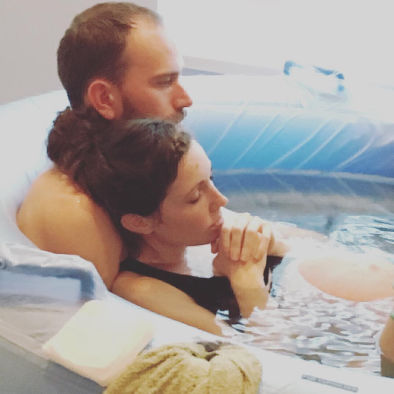A Midwife is a primary health care provider who is trained and educated to provide comprehensive, clinical care for low- to moderate-risk women throughout their childbearing year. Midwives assess the health of mother and her unborn baby prenatally, monitor mother and baby during labor, catch the baby, manage most emergencies, repair lacerations, conduct newborn examinations, provide postpartum care for mother and baby for up to six weeks after birth, continue to assist with breastfeeding support as long as mother and baby nurse, and provide well woman care, within their scope of practice, for those mothers.
A Doula is a trained labor support person. S/he is specially trained to inform parents of birth options, give emotional support, and provide physical and emotional comfort measures and assistance during labor, birth and postpartum. Some doulas help women during the postpartum period with support services such as: meal preparation, light housekeeping, some childcare, breastfeeding support, and newborn care (diapering, bathing). Others concentrate solely on pregnancy and birth. S/he does not perform any clinical duties such as taking blood pressure, doing vaginal exams, monitoring fetal heart tones, or catching babies. These skills are outside the scope of practice of a doula. The advice a doula offers should not interfere with the relationship between the mother and her maternity care and newborn care providers.

